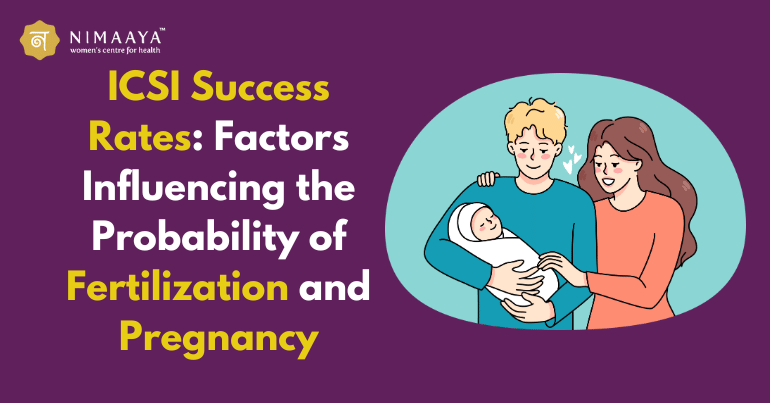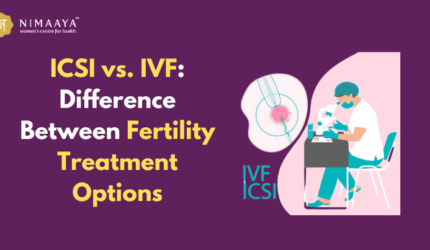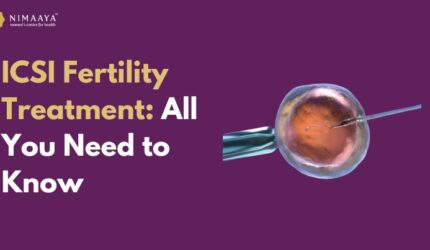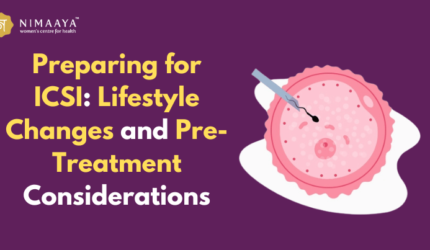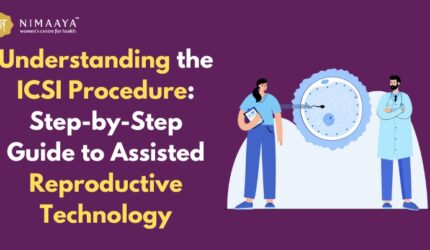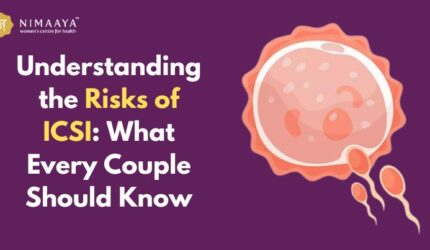Introduction
In the realm of assisted reproductive technology (ART), one of the most promising advancements has been Intracytoplasmic Sperm Injection (ICSI). This groundbreaking procedure has revolutionized fertility treatments, offering hope to individuals and couples struggling with infertility. But what exactly determines the ICSI success rates? Let’s delve into the factors that play pivotal roles in influencing the probability of fertilization and pregnancy, shedding light on crucial aspects like quality of sperm, maternal age, and more.
Understanding ICSI Success Rates
Understanding ICSI success rates is crucial for individuals and couples navigating the complexities of infertility treatment. Intracytoplasmic Sperm Injection (ICSI) offers a tailored approach to fertility challenges, but its efficacy hinges on various factors, including sperm and egg quality, maternal age, and underlying fertility issues. By delving into the intricacies of ICSI success rates, individuals gain valuable insights into the likelihood of achieving successful fertilization and pregnancy.
Comprehensive pre-treatment assessments, coupled with a thorough understanding of the ICSI procedure, empower patients to make informed decisions and actively participate in their fertility journey. With the guidance of experienced fertility specialists and a personalized approach to treatment, individuals can navigate the path to parenthood with confidence, knowing they are equipped with the knowledge and support needed to maximize their chances of success.
Understanding Step-by-Step ICSI Procedure
A comprehensive understanding of the ICSI procedure is essential for individuals embarking on this fertility journey. Unlike conventional IVF, which relies on natural fertilization, ICSI involves a meticulously orchestrated process of sperm injection into matured eggs under controlled laboratory conditions. From ovarian stimulation and egg retrieval to sperm injection and embryo transfer, each step of the procedure demands precision and expertise. Familiarizing oneself with the intricacies of the ICSI process empowers individuals to make informed decisions and actively participate in their treatment journey.
Ovarian Stimulation:
The journey begins with ovarian stimulation, where fertility medications are administered to stimulate the ovaries to produce multiple mature eggs. This step aims to maximize the chances of successful egg retrieval.
Egg Retrieval:
Once the follicles containing mature eggs reach optimal size, a minor surgical procedure known as egg retrieval is performed. Under sedation, a specialized needle is guided through the vaginal wall to aspirate the fluid and retrieve the mature eggs from the ovaries.
Sperm Collection:
Simultaneously, sperm collection takes place, either through ejaculation or surgical extraction techniques such as testicular sperm extraction (TESE) or Tepididymal sperm aspiration (TESA). The collected sperm undergoes thorough evaluation to select the most viable candidates for injection.
Sperm Injection:
In the laboratory, skilled embryologists meticulously inject a single, high-quality sperm directly into each mature egg using a micropipette. This precise technique ensures the fusion of sperm and egg, initiating the process of fertilization.
Embryo Culture:
Following sperm injection, the fertilized eggs, now embryos, are carefully incubated in a controlled environment to facilitate optimal growth and development. Embryo monitoring ensures timely progression and viability assessment.
Embryo Transfer:
After a few days of culture, the healthiest embryos are selected for transfer into the uterus. This delicate procedure involves the insertion of a thin catheter through the cervix, depositing the embryos into the uterine cavity, where they can implant and initiate pregnancy.
Luteal Phase Support:
To support the early stages of pregnancy, supplemental hormones may be administered to mimic the natural hormonal milieu conducive to implantation and embryo development.
Navigating the ICSI procedure step by step demands collaboration between patients and fertility specialists, fostering a partnership grounded in shared knowledge and mutual understanding. By familiarizing themselves with the intricacies of each stage, individuals can actively engage in their treatment journey, fostering a sense of empowerment and informed decision-making.
Decoding the Influential Factors in ICSI Success Rates
In the assisted reproductive technology (ART) era, Intracytoplasmic Sperm Injection (ICSI) stands as a beacon of hope for couples grappling with infertility challenges. The success of ICSI hinges upon a myriad of factors, each playing a crucial role in determining the likelihood of successful fertilization and ultimately, the realization of the dream of parenthood. Let’s delve into the influential factors that sway ICSI success rates, shedding light on their intricate interplay and profound implications.
Maternal Age:
Maternal age emerges as a pivotal factor influencing the ICSI success rate by age. Statistical analyses reveal varying success rates across different age brackets, underscoring the impact of age-related changes on fertility outcomes. For instance, while women under 30 typically exhibit higher success rates due to superior egg quality and reproductive health, success rates may gradually decline beyond the age of 35. Understanding these age-related nuances is essential for patients and fertility specialists alike in crafting tailored treatment plans.
Sperm Quality:
Central to the success of ICSI is the quality of the sperm used in the procedure. Sperm quality encompasses parameters such as morphology, motility, and DNA integrity, all of which are critical determinants of fertilization success. In cases of male infertility, where conventional methods may prove ineffective, ICSI offers a lifeline by directly injecting a single, viable sperm into the egg, ICSI success rates for male infertility can also be influenced by the quality of sperm. Thus, meticulous evaluation and selection of high-quality sperm are imperative in optimizing ICSI success rates.
Egg Quality:
Complementing the quality of sperm, egg quality holds equal significance in the ICSI process. Maternal age, once again, emerges as a key determinant, with younger women typically presenting with superior egg quality and higher success rates. However, advanced maternal age and underlying fertility issues can compromise egg quality, posing challenges to successful fertilization. Thus, interventions aimed at enhancing egg quality are paramount in improving ICSI success rates.
Underlying Fertility Issues:
Beyond age and quality of sperm, underlying fertility issues exert a profound impact on ICSI success rates. Conditions such as male factor infertility, endometriosis, and polycystic ovary syndrome (PCOS) can significantly affect the chances of successful fertilization and pregnancy. Addressing these underlying issues through comprehensive diagnostic evaluations and targeted interventions is essential in optimizing ICSI outcomes.
Ovarian Reserve:
The quantity and quality of a woman’s eggs, known as ovarian reserve, play a significant role in ICSI success. Women with diminished ovarian reserve may have lower success rates due to fewer and lower-quality eggs available for fertilization. Furthermore, ovarian reserve can be assessed through various tests, including hormone levels (such as AMH and FSH) and antral follicle counts, aiding in the prediction of ICSI outcomes. Treatment strategies tailored to optimize the ovarian response, such as ovarian stimulation protocols and medication adjustments, may be employed to mitigate the impact of diminished ovarian reserve on ICSI success rates.
Previous ART Cycles:
Previous experiences with assisted reproductive technologies (ART), including ICSI, can impact success rates. Factors such as embryo quality, implantation history, and response to ovarian stimulation may affect the likelihood of success in subsequent cycles. Additionally, the duration between ART cycles and any adjustments made based on the outcomes of previous treatments can also influence the success of subsequent ICSI cycles.
Embryo Quality:
The quality of embryos transferred during ICSI plays a crucial role in determining success rates. Embryo grading based on morphology and developmental stage helps assess the likelihood of implantation and ongoing pregnancy. Furthermore, advancements in techniques such as preimplantation genetic testing (PGT) can provide additional insights into embryo quality, aiding in the selection of the most viable embryos for transfer, thus enhancing the success of the ICSI procedure.
Uterine Environment:
The receptivity of the uterine lining, influenced by factors such as endometrial thickness, hormone levels, and the presence of uterine abnormalities, can affect embryo implantation and the success of ICSI. Additionally, factors like endometrial receptivity, which is influenced by the timing of embryo transfer about the woman’s menstrual cycle, also play a crucial role in determining the success of ICSI by impacting embryo implantation rates.
Lifestyle Factors:
Lifestyle factors such as smoking, alcohol consumption, diet, and body weight can impact fertility and the success of ICSI. Adopting a healthy lifestyle, including regular exercise and a balanced diet, may improve outcomes. Moreover, maintaining a healthy body weight, abstaining from smoking and excessive alcohol consumption, along with consuming a diet rich in nutrients, can contribute positively to both fertility and the effectiveness of ICSI procedures.
Stress and Emotional Well-being:
Psychological factors, including stress, anxiety, and depression, can influence the success of ICSI. Managing stress through relaxation techniques, counseling, and support groups may positively impact treatment outcomes. In addition, incorporating mindfulness practices and engaging in activities that promote emotional well-being can also contribute to optimizing the success of ICSI treatments.
Clinic and Laboratory Factors:
The expertise of the medical team, the quality of the laboratory facilities, and adherence to best practices in ART procedures can significantly affect ICSI success rates. Choosing a reputable fertility clinic like Nimaaya IVF Center, with a track record of success may improve the chances of a successful outcome. Furthermore, the availability of advanced technologies and the implementation of stringent quality control measures within the clinic’s laboratory can further enhance the precision and efficacy of the ICSI procedure, thus contributing to higher success rates.
In essence, the success of ICSI hinges upon a delicate interplay of factors ranging from maternal age and quality of sperm to underlying fertility issues. Understanding and addressing these factors in a comprehensive manner is paramount in optimizing ICSI success rates and realizing the cherished dream of parenthood.
Cost of icsi treatment
The ICSI treatment cost is a significant consideration for individuals embarking on their fertility journey. While the expenses associated with ICSI can vary depending on factors such as geographic location, clinic reputation, and specific treatment protocols, it’s essential to budget for both the procedure itself and any additional medications or tests that may be required. Understanding the financial implications of ICSI treatment allows individuals to plan effectively and explore potential avenues for financial assistance or insurance coverage. Open communication with fertility clinics regarding pricing structures and available options ensures that individuals can make informed decisions that align with their budget and overall goals for family building.
Unraveling the Enigma – ICSI Side Effects on Mother
While ICSI offers promising prospects for conception, it’s essential to acknowledge potential ICSI side effects on mothers. Ovarian hyperstimulation syndrome (OHSS), a rare but serious complication, underscores the importance of vigilant monitoring and tailored interventions. Additionally, hormonal fluctuations and emotional challenges may accompany the ICSI journey, necessitating holistic support for the mother’s well-being.
Conclusion:-
ICSI represents a remarkable milestone in the field of reproductive medicine, offering a lifeline to individuals and couples striving to realize their dreams of parenthood. By understanding the multifaceted factors that influence success rates, from the quality of sperm and maternal age to underlying fertility issues and beyond, individuals can embark on their ICSI journey with confidence and optimism. With the guidance of experienced fertility specialists and a comprehensive approach to treatment, the path to achieving successful fertilization and pregnancy becomes clearer, bringing hope and joy to families worldwide.

